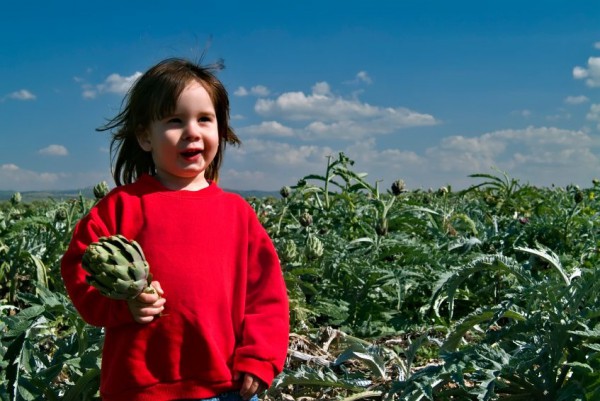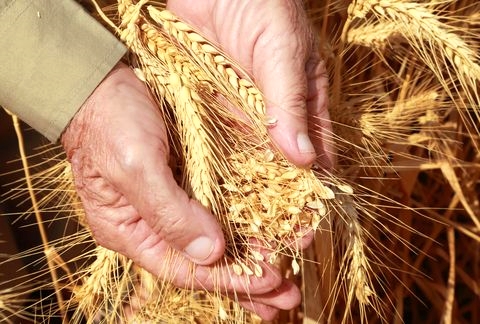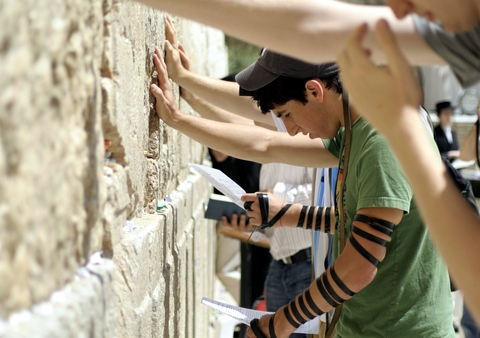Parasha Ki Tavo (When You Enter)
Deuteronomy 26:1–29:8; Isaiah 60:1–22; Luke 23:26–56
“When you have entered [ki tavo] the land the Lord your God is giving you as an inheritance… take some of the firstfruits of all that you produce from the soil of the land the Lord your God is giving you and put them in a basket. Then go to the place the Lord your God will choose as a dwelling for His name.” (Deuteronomy 26:1–2)
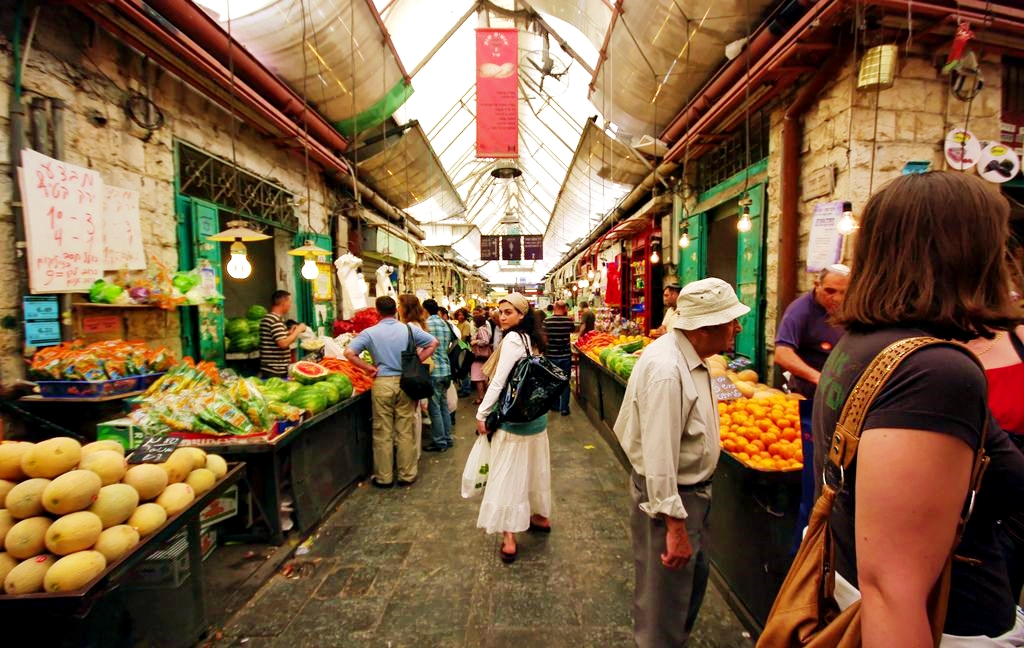
The Mahane Yehuda Market is an outdoor market in Jerusalem that is often just called “The Shuk.” With more than 250 vendors, it’s a popular place to come on Thursday and Friday to stock up for Shabbat (Saturday).
Last week’s Parasha, Ki Tetze, contains 74 of the 613 commandments found in the Torah, including the laws of the beautiful captive, the rebellious son, and divorce.
This week, in Parasha Ki Tavo (When You Enter), God instructs Israel to bring the first-ripened fruits (bikkurim) to the Temple in Jerusalem once the Israelites have finally entered the Land He promised to them.
After they had settled in the Land and cultivated it, they were to present this offering to the Levites (Deuteronomy 26:2–4).
In giving this firstfruits offering, which included wheat, barley, grapes, figs, pomegranates, olives, and dates, the Israelites were offering thanksgiving to God for all the amazing things He had done for them.
He had rescued them from great hardship in Egypt and from wandering in the wilderness. He had brought them into a good land that was rich and fertile to become a great nation, dwelling in comfort, safety, and security.
“The Lord heard our voice, and saw our misery, toil and oppression. So the Lord brought us out of Egypt with a mighty hand and an outstretched arm, with great terror and with signs and wonders.” (Deuteronomy 26:7–8)
Tithing with Thanksgiving
“He brought us into this place and gave us this land, a land flowing with milk and honey.” (Deuteronomy 26:9)
The tithes given to the Levites and the poor were not given in silence, but with a confession of the awesome mercy and goodness of God!
Likewise, when we present our tithes and offerings to the Lord, we also should acknowledge the many ways in which we have seen the goodness and mercy of God in the land of the living.
As Israel did in ancient times, we should recall how He has healed us, delivered us, and provided for our needs.
Although many of us might not know the exact place to which God is bringing us, we can rest assured that He is leading us somewhere.
And if He is leading, it’s going to be a good land. Hallelujah!
When God brings us out of a difficult place, delivering us from a horrible pit, and setting our feet on solid rock, we need to thank Him and be willing to give back materially from His incredible bounty.
“Be sure to set aside a tenth of all that your fields produce each year.” (Deuteronomy 14:22)
When we do this, we demonstrate that He is the source of all our blessings.
Finding Strength in the Joy of His Presence
“Rejoice in all the good things the Lord your God has given to you and your household.” (Deuteronomy 26:11)
Once we have given our offering, there is only one thing left to do—rejoice!
All too often, the enemy seeks to steal and destroy our joy. Why does he want to do this? Because the joy of the Lord is our strength.
“Do not grieve, for the joy of the Lord is your strength.” (Nehemiah 8:10)
If we allow the enemy of our soul to steal our joy, we won’t have the strength to possess the good land that God is giving us.

“Go and enjoy choice food and sweet drinks, and send some to those who have nothing prepared. This day is holy to our Lord. Do not grieve, for the joy of the LORD is your strength.” (Nehemiah 8:10)
Still, there are times when we just wake up feeling weary, discouraged, or defeated. Joy seems like it’s nowhere to be found.
Maybe we have pain in our body, or maybe we lack finances. Our family relationships might be going through a rough season. How do we recover our joy in these cases?
There is only one solution—enter (tavo) into the presence of Adonai where there is “fullness of joy.”
“You make known to me the path of life; in your presence there is fullness of joy; at your right hand are pleasures forevermore.” (Psalm 16:11)
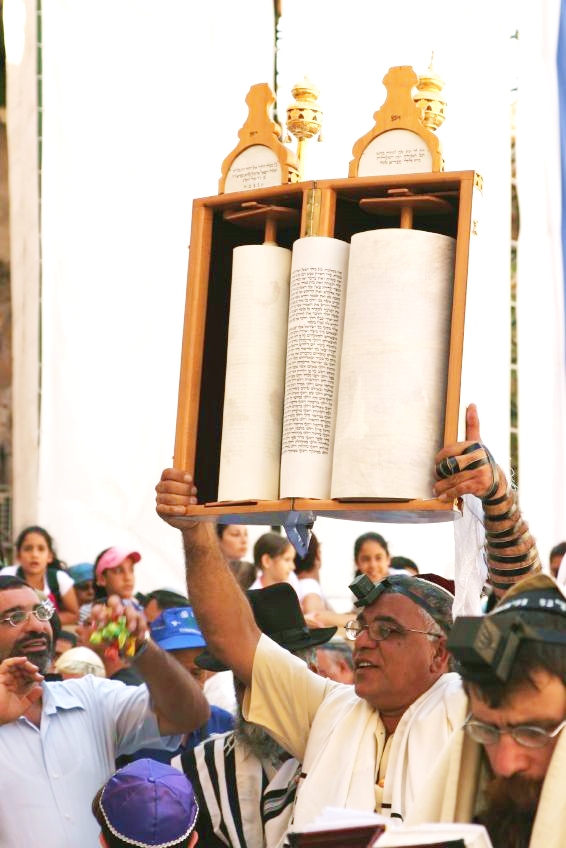
Jewish man raising up a sacred Torah (Bible) Scroll at the Western (Wailing) Wall in Jerusalem. On the man’s forehead is tefillin—a small leather box containing parchment inscribed with verses from the Torah.
Joy and the Book of Life
Believers in Yeshua (Jesus) the Messiah have the responsibility and privilege of rejoicing continually in our God—not just when circumstances seem to be going their way, but always.
While in a prison cell, Paul wrote, “Rejoice in the Lord always and again I say rejoice!” (Philippians 4:4)
Yeshua told His disciples not to rejoice just because spirits were subject to them, but to rejoice that their names were written in the Book of Life. (Luke 10:20)
We must rejoice that our names are in the Book of Life and not allow circumstances to dictate our level of joy.
This Biblical theme of the Book of Life is particularly relevant at this time of the year during the coming fall feasts of Rosh Hashanah (Jewish New Year on September 4–6) and Yom Kippur (The Day of Atonement on September 13–14, 2013).
This Book is mentioned often throughout the High Holy Days when Jewish people traditionally send cards to their friends and family that often have the greeting “May you be sealed for a good year in the Book of Life.”
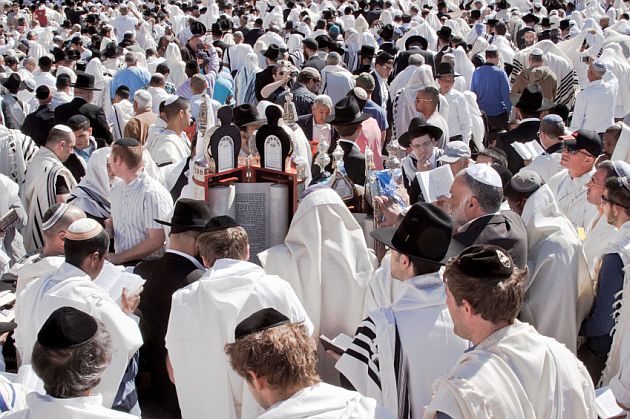
Because the Western (Wailing) Wall in Jerusalem is a huge, open-air synagogue, the Jewish People can gather here in great numbers during the holidays.
Real Love Is Sacrificial
Moses knew his name was written in the Book of Life. Still, he was willing to have his name blotted out of it in exchange for the salvation of Israel!
God was about to destroy the Israelites completely for worshiping a golden calf, but Moses entreated God on their behalf, saying:
“This people have committed a great sin, and they have made a god of gold for themselves. But now, if You will, forgive their sin—and if not, please blot me out of Your book which You have written!” (Exodus 32:31–32)
Moses had a sacrificial, unfailing love for the people of Israel. That is real love.
Centuries later, Yeshua (Jesus) demonstrated this same love for the lost sheep of the House of Israel when He gave His very life to redeem them from their sins.
He said, “The shepherd lays down his life for the sheep.” (John 10:11)
The apostle Paul wholeheartedly followed in the footsteps of Moses and Yeshua, echoing the same sacrificial love for Israel. (Romans 9:1–5)
Those who shepherd God’s people are also called to this life of sacrificial love!
May each of us be willing to make the sacrifices necessary for the Jewish People and the nations to hear about Yeshua.
Most Jewish people hope that their name will be written in the Book of Life through good deeds, prayer, repentance, and the giving of charity.
The only way any of us, however, can know for certain that our names are recorded in God’s Book of Life is by knowing God through faith in Yeshua the Messiah, and walking in the Ruach HaKodesh (Holy Spirit), which leads us into a holy life of prayer, repentance, and good deeds.
God’s Word clearly states that if our names are not written in the Book of Life, then we are doomed to eternal condemnation. The Hebrew prophet Daniel, for instance, prophesied the following:
At that time Michael, the great prince who protects your people, will arise. There will be a time of distress such as has not happened from the beginning of nations until then. But at that time Your people—everyone whose name is found written in the book—will be delivered.
Many who sleep in the dust of the earth will awake: some to everlasting life, others to shame and everlasting contempt. (Daniel 12:1–2)
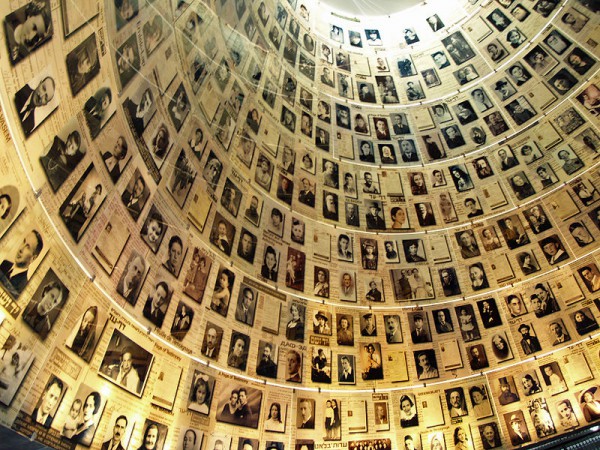
The Hall of Names at Yad Vashem, the Holocaust Memorial Museum in Jerusalem, is a memorial to the Jews who perished in the Holocaust.
Schindler’s List
Yad Vashem, the Holocaust Memorial Museum in Jerusalem, displays a typed list of names on old, yellowing paper.
At first glance, this record seems to be an ordinary list on ordinary paper.
But upon closer inspection, one can see that it’s no ordinary list—this is the list made by Oskar Schindler, a German industrialist who saved 1,200 Jews during the Holocaust by designating them “essential” employees of his company.
During the Nazi occupation of Europe in WWII, having one’s name on Schindler’s list was the difference between life and death for the Jewish laborers of the Plaszow work camp in Krakow, Poland.
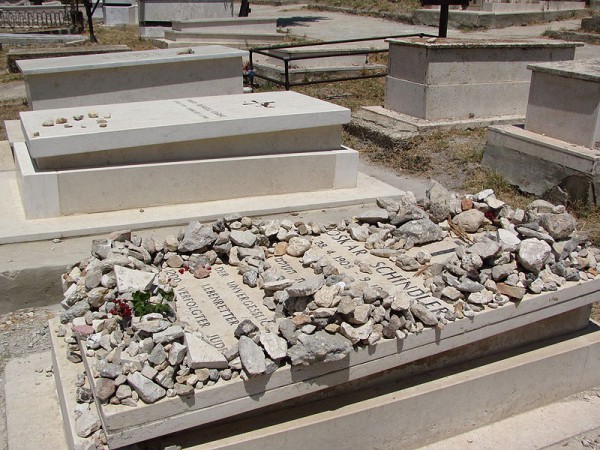
Side view of Oskar Schindler’s grave, which is found in the Mount Zion Franciscan Cemetery in Jerusalem. His is the only grave piled high with stones, a custom usually seen only in Jewish cemeteries, indicating the many Jewish visitors to his grave site.
The Lamb’s Book of Life
While having one’s name on Schindler’s List meant more time to treasure this mortal life, having one’s name in the Book of Life means the opportunity to treasure Eternity.
Those whose names are written in this wonderful book will also have the privilege of being part of the Bride of Messiah in the New Jerusalem.
“Then I saw the holy city, new Jerusalem, coming down out of heaven from God, made ready as a bride adorned for her husband.
… and nothing unclean, and no one who practices abomination and lying, shall ever come into it, but only those whose names are written in the Lamb’s Book of Life.” (Revelation 21:1–2, 27)




